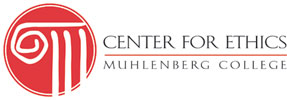
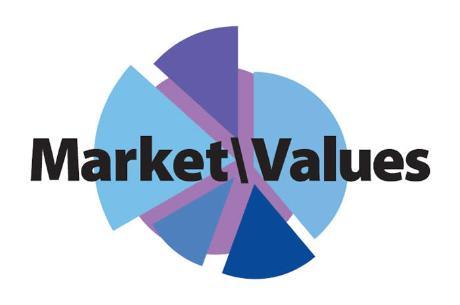
Markets have been celebrated by many as a positive force for democratizing a standard of living previously accessible primarily to those of noble birth. However, with progress comes a dependence on markets that risks limiting our ability to constrain them through the social and political institutions that govern economic exchange. Indeed, Adam Smith, the "father" of modern capitalism, advanced the cause of free and open markets while simultaneously warning that unfettered economic activity might hinder human moral development. The observation that markets are embedded in economic, political, social, and cultural contexts begs the question of whether markets are “free” or “natural.” The interplay of markets and morality is at the heart of the program. We will examine historical and contemporary questions about markets and accompanying moral issues they raise in regard to intellectual property, environmental sustainability, health and education, identity issues such as race and gender, and interactive media as labor. What sorts of markets create incentives for morally problematic behavior? And what markets promote virtues that bring about a harmony of interests? Does market organization of economic activity have an ethical basis, and, if so, how can that basis be used to evaluate the moral legitimacy of particular markets and market outcomes? Does the distribution of wealth that results from market activity derive its justification from the moral legitimacy of the exchange process, or is market wealth distribution a valid object of ethical inquiry in its own right? In what ways do market structures mediate political discourse, cultural evolution, and national and post-national identity?
Market\Values is directed by Sue Curry Jansen ([email protected]) in association with S. Mohsin Hashim ([email protected]) and Marcia Morgan ([email protected]). Please feel free to contact Sue, Mohsin, or Marcia regarding program questions, or Bruce Wightman, Director of the Center for Ethics ([email protected]) for more information.
CFEFall2012ProgramBrochure.pdf
Program Resources at Trexler Library
CALENDAR OF EVENTS
FALL 2012
Jerry Evensky
“Adam Smith’s Moral Philosophy”
September 5
Event Space, Seegers Union, 7:30 p.m.
Dr. Jerry Evensky is Professor of Economics at the Maxwell School at Syracuse University. His interests include the economic philosopher Adam Smith, ethics and liberal society, the history of economic thought, labor economics, and education. He is the author of Adam Smith's Moral Philosophy: A Historical and Contemporary Perspective on Markets, Law, Ethics, and Culture (2005) and numerous scholarly publications.
Michael Franz
“Fear and Loathing after Citizens United”
September 18
Miller Forum, Moyer Hall, 7:00 p.m.
Dr. Michael Franz is Associate Professor of Government and Legal Studies at Bowdoin College. His research interests include campaign finance and political advertising. He is the author or coauthor of four books, including Choices and Changes: Interest Groups in the Electoral Process (2008) and The Persuasive Power of Campaign Advertising (2011). He is currently co-director of the Wesleyan Media Project, which tracks and codes political ads on television.
Presented in collaboration with the Political Science Department and Provost's Office.
Too Big to Fail
Film screening
September 27
Trumbower 130, 7:30 p.m.
Discussion led by Donna Kish-Goodling and Paul McEwan 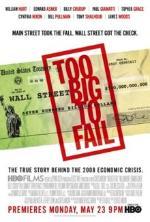
HBO docudrama on the 2008 financial crisis with an all-star cast. As the crash begins, Treasury Secretary Henry Paulsen (William Hurt) finds himself entangled in a struggle with Wall Street and Washington. Curtis Hansen’s adaptation of Andrew Ross Sorkin’s book was nominated for eleven Emmys including the Best Made for Television Movie of 2011
Dale McCormick
"Can Markets serve the Common Good?"
October 9
Miller Forum, Moyer Hall, 7:00 p.m.
Woodrow Wilson Visiting Fellow
Can markets be transparent, accessible by all, sustainable, and rationally priced? What does a moral market look like? Should there be one, two or three bottom lines? What is the role of government? Can we avoid participating in immoral markets? Examining markets like health care, energy, insurance and education yields food for thought.
The Corporation
Film screening
November 8
CA Recital Hall, 6:30 p.m.
Discussion led by Dan Doviak
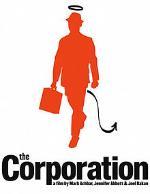 Award-winning Canadian film by Mark Acbar, Jennifer Abbott and Joel Backan explores the nature and rise of the modern corporation. It examines what the corporation’s status as a legal person means and asks what kind of person the corporation is. Includes interviews with corporate insiders and critics including Noam Chomsky, Naomi Klein, Milton Friedman, Howard Zinn, Vandana Shiva and Michael Moore.
Award-winning Canadian film by Mark Acbar, Jennifer Abbott and Joel Backan explores the nature and rise of the modern corporation. It examines what the corporation’s status as a legal person means and asks what kind of person the corporation is. Includes interviews with corporate insiders and critics including Noam Chomsky, Naomi Klein, Milton Friedman, Howard Zinn, Vandana Shiva and Michael Moore.
Nothing Like Chocolate
Screening and discussion with filmmaker, Kum-Kum Bhavnani
November 15
Trumbower 130, 7:30 p.m.
 Kum-Kum Bhavnani is Professor of Sociology at University of California at Santa Barbara. She describes herself as a university professor by day and a filmmaker by night. Her earlier award-winning film, The Shape of Water narrated by Susan Sarandon, has been shown throughout the world. Nothing like Chocolate tells the hopeful story of Mott Green, founder of the Grenada Chocolate Company, who brought ethical labor and sustainable environmental practices to a global industry that is entrenched in enslaved child labor.
Kum-Kum Bhavnani is Professor of Sociology at University of California at Santa Barbara. She describes herself as a university professor by day and a filmmaker by night. Her earlier award-winning film, The Shape of Water narrated by Susan Sarandon, has been shown throughout the world. Nothing like Chocolate tells the hopeful story of Mott Green, founder of the Grenada Chocolate Company, who brought ethical labor and sustainable environmental practices to a global industry that is entrenched in enslaved child labor.
SPECIAL EVENT: Workshop with filmmaker, Kum-Kum Bhavnani
12:30-1:45 PM, Video Studio, Walson Hall.
"Ethics and Social Justice: Spreading the Word through Video."
SPRING 2013
"Reinventing Free Markets since the Depression"
Jan. 15
Miller Forum, Moyer Hall, 7:30 p.m. 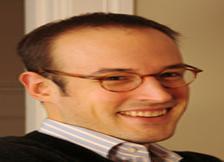
Angus Burgin is Assistant Professor of History at Johns Hopkins University. His book, The Great Persuasion: Reinventing Free Markets since the Depression, presents a compelling intellectual history of the evolution of postwar economic thought.
"Ethics, Environment and Markets"
Feb. 19
Miller Forum, Moyer Hall, 7:30 p.m.
Benjamin Hale is Assistant Professor of Philosophy and Environmental Studies at the University of Colorado at Boulder. Hale explores questions of value and market forces in relation to public policy, the environment, geoengineering, bioethics, and much more.
Branko Milanović
"Twenty Years of Globalization: National and Global Inequalities, 1989-2008"
Feb. 26
Empie Theatre, Center for the Arts, 7:30 p.m.
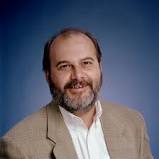
Branko Milanović is the lead economist at The World Bank's Development Research Group and currently a Visiting Professor at Johns Hopkins University. He is the author of The Haves and the Have-Nots: A Brief and Idiosyncratic History of Global Inequality, which explores the economic implications of wealth distribution.
Sister Nora Nash
"Corporate Social Responsibility"
March 13
Miller Forum, Moyer Hall, 7:30 p.m.
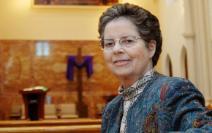 Sister Nora Nash is Director of Corporate Social Responsibility for the Sisters of St. Francis of Philadelphia. A member of the Interfaith Center for Corporate Responsibility, she works on corporate responsibility, shareholder advocacy, including environmental issues and sustainability, human rights and community development. Other current foci of her efforts include human trafficking, and responsible approaches to fracking. Her work has been featured in The New York Times and on National Public Radio.
Sister Nora Nash is Director of Corporate Social Responsibility for the Sisters of St. Francis of Philadelphia. A member of the Interfaith Center for Corporate Responsibility, she works on corporate responsibility, shareholder advocacy, including environmental issues and sustainability, human rights and community development. Other current foci of her efforts include human trafficking, and responsible approaches to fracking. Her work has been featured in The New York Times and on National Public Radio.
Dana Forum on Market\Values
April 3 and 4
Great Room, Seeger’s Union, 5:30 p.m.
Presentations of Interdisciplinary Group Research Projects by Muhlenberg College Seniors from the Dana Honors Program: Art Markets & Transmedia, Science Funding, Narco-trafficking, Legalization of Marijuana, Markets of Religion, Entertainment Markets, Factory Farming, and Fast Food.
DANA FORUM PROGRAM PDF
Why Open Access Matters to You: A Faculty Panel
Wednesday, April 10
Hoffman House, 4:30-6:00 PM
Panelists will address the benefits of "open access" publishing--the growing movement to provide free and unrestricted access to
scholarship via the web. The open access model promises relief for library budgets, more readers and citations for researchers, and support for longstanding scholarly principles of openness and
transparency. Panelists will also address early plans for a faculty-endorsed policy on open access at the college.
A panel discussion for Muhlenberg faculty and staff, led by Adam Clark, Cliff Kussmaul, Sharon Albert, Kelly Cannon, Jeff Pooley and John Sullivan.
